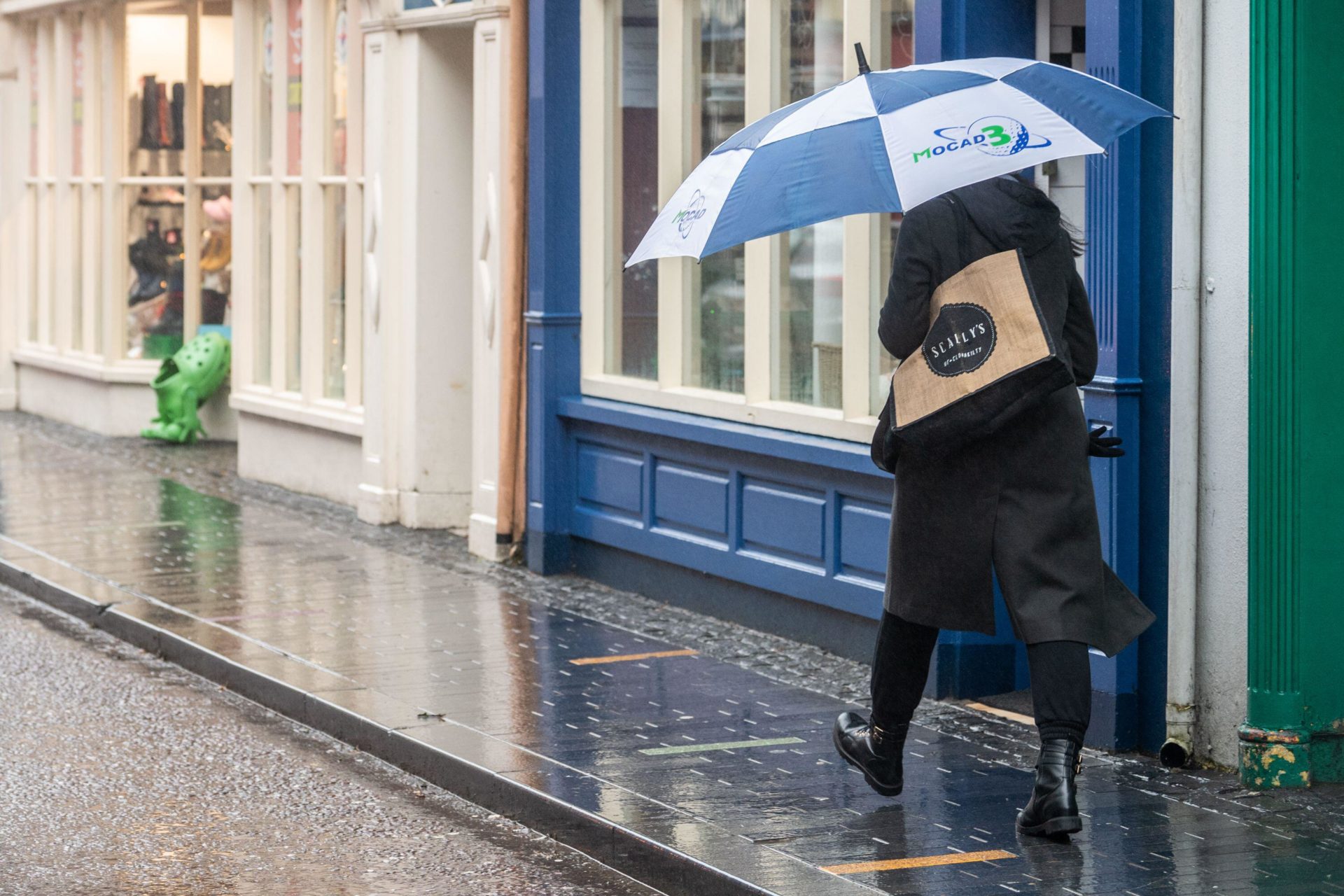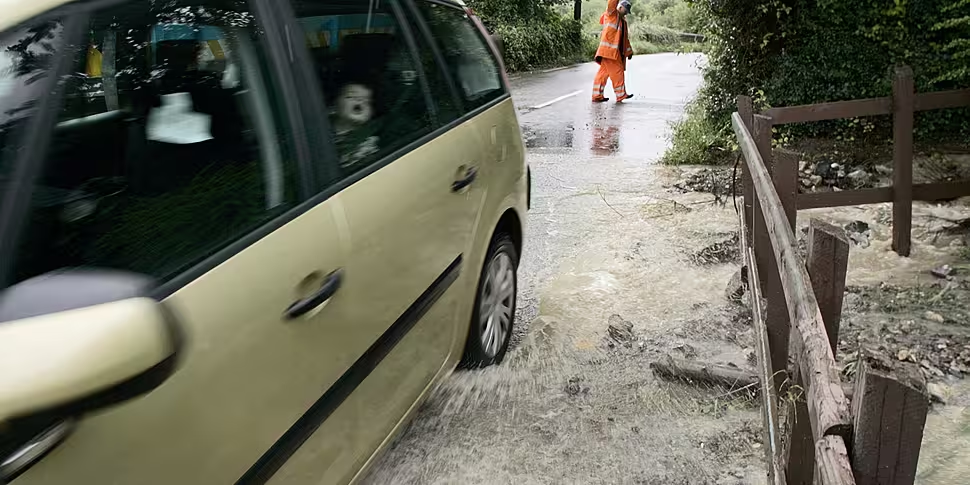People are being urged to take extreme care on the roads as Orange and Yellow weather warnings are in effect for several areas.
A Status Orange rain warning is in place for Cork and Waterford until 6pm, while Carlow, Kilkenny and Wexford will see the same alert in place from 1pm to midnight.
Met Éireann is forecasting heavy rain with some intense and thundery downpours.
Possible impacts in the affected areas include flooding, dangerous driving conditions and travel disruption.
⚠️Status Yellow #Rain warning updated⚠️
Areas: Carlow, Kilkenny, Wexford & Wicklow
Possible Impacts:
• Localised flooding🌊
• Difficult travelling conditions / travel delays🚗🚴
• Some fallen branches/trees🌿
Valid: 12:00 29/9 to 00:00 30/09https://t.co/lvQFgW8DsS pic.twitter.com/SMtIeea9vA— Met Éireann (@MetEireann) September 29, 2024
Status Yellow rain warnings have also been issued for Cork, Kerry, Limerick, Tipperary and Waterford until 8pm.
A separate Status Yellow rain warning will also be in place for Carlow, Kilkenny, Wexford and Wicklow from midday to midnight.
Heavy rain is to be accompanied by strong and gusty winds with the possibility of localised flooding, difficult travelling conditions and fallen branches.
Road safety
The Road Safety Authority (RSA) is asking road users to exercise caution while using the roads across Sunday and Monday.
Road users in areas affected by the Orange warning are advised to check local traffic and weather conditions before setting out on a journey.
Drivers are advised to slow down and allow a greater braking distance between themselves and the vehicle in front.
This is especially important on high-speed roads such as dual carriageways and motorways where there is increased danger of aquaplaning.
They should also take special care when driving behind goods vehicles as they generate a considerable amount of spray, which reduces visibility
If the road ahead is flooded, choose another route. Do not attempt to drive through it.
"Flooded roads that appear shallow could be deeper than you think. The verge may have subsided and there may also be trees or branches that have fallen that may not be visible," the RSA says.
After going through water, motorists should drive slowly with their foot on the brake pedal for a short distance - this helps to dry the brakes.
They should also drive with dipped headlights at all times to ensure they are visible and so they can see other road users.
 Rainy weather in Clonakilty, Co Cork. Image: AG News/Alamy
Rainy weather in Clonakilty, Co Cork. Image: AG News/AlamyThey are also advised to watch out for objects being blown out onto the road and for falling or fallen debris.
Drivers should allow extra space between themselves and vulnerable road users such as people cycling and motorcyclists as they may be blown off-course by strong winds.
Pedestrians should walk on the right-hand side of the road, facing traffic if there are no footpaths.
People cycling should ensure they and their bike are visible to other road users with front and rear lights and by wearing clothes that help them be seen.
They should take extra care when crossing the road or cycling in extremely windy conditions, as a sudden gust of wind could blow them into the path of an oncoming vehicle.









